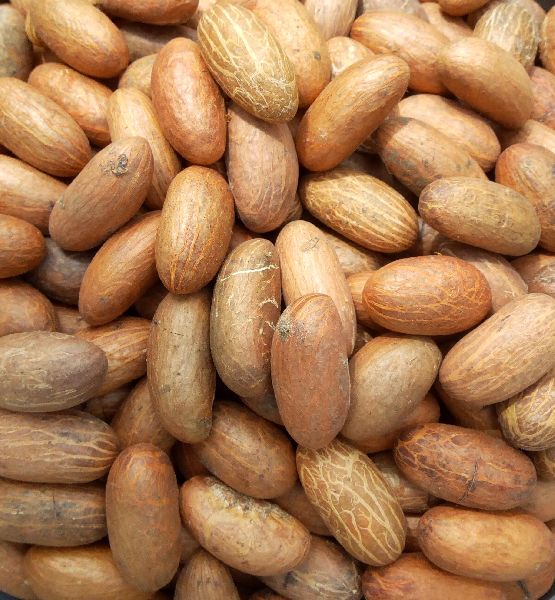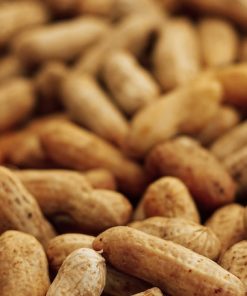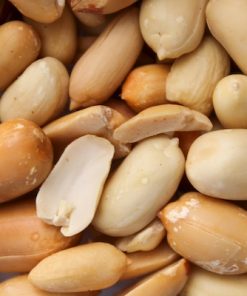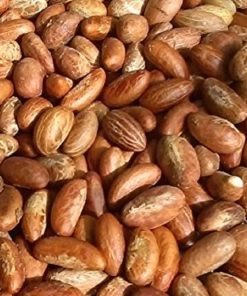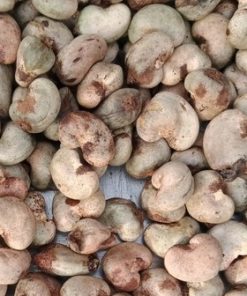What is Bitter Kola? Why Buy It?
Bitter Kola (Garcinia kola) is a highly valued tropical plant native to West and Central Africa. It is a flowering plant that produces seeds commonly known as Bitter Kola, which have been used for centuries in African traditional medicine, food, and cultural practices. Unlike the more widely known kola nut (Cola acuminata), Bitter Kola is distinguished by its characteristic bitter taste and its rich phytochemical composition, making it a sought-after commodity in various industries.
Bitter Kola is renowned for its numerous health benefits. It is rich in flavonoids, tannins, saponins, and alkaloids, which contribute to its antimicrobial, anti-inflammatory, and antioxidant properties. In traditional medicine, Bitter Kola is used to treat infections, boost immunity, and improve respiratory function. It is also believed to enhance cognitive function, increase stamina, and support digestive health.
Another compelling reason to buy Bitter Kola is its rising global demand in the pharmaceutical, food, and cosmetic industries. It is an essential raw material for the production of herbal supplements, medicinal extracts, and natural cosmetic formulations. Additionally, the nut is gaining traction in international markets due to increasing consumer preference for organic and plant-based products.
From an economic perspective, Bitter Kola represents a lucrative investment opportunity for both exporters and importers. The growing recognition of its health benefits has driven demand across various regions, creating a stable and profitable market for traders. With sustainable sourcing practices and proper quality control, Bitter Kola offers a viable commercial opportunity for stakeholders in the global supply chain.
Applications/Uses of Bitter Kola
Bitter Kola serves a diverse range of applications across multiple industries, owing to its unique chemical composition and health-promoting properties.
Traditional and Herbal Medicine
- Bitter Kola is widely used in African traditional medicine to treat various ailments, including colds, coughs, and bronchial conditions.
- It has antimicrobial properties that help combat bacterial and viral infections.
- The nut is believed to support liver function and aid in detoxification.
Pharmaceutical Industry
- Bitter Kola extracts are used in the formulation of natural supplements for immune support.
- It is incorporated into herbal remedies targeting respiratory conditions and digestive issues.
- Researchers are exploring its potential in the treatment of diabetes and inflammatory disorders.
Food and Beverage Industry
- In some cultures, Bitter Kola is chewed raw for its stimulant and appetite suppressant effects.
- It is used as a natural flavoring agent in beverages and herbal drinks.
- Some confectionery manufacturers incorporate it into functional food products.
Cosmetic and Personal Care Industry
- Bitter Kola extracts are added to skincare products due to their antioxidant and anti-aging properties.
- It is used in hair care products for scalp treatment and hair growth stimulation.
- Its antimicrobial properties make it a valuable ingredient in organic soaps and lotions.
Agriculture and Animal Feed Industry
- Bitter Kola is used in organic pesticides due to its natural insecticidal properties.
- Some livestock farmers incorporate it into animal feed formulations to enhance growth and immunity.
Top Producing/Exporting Countries of Bitter Kola
Bitter Kola is primarily cultivated in tropical regions of West and Central Africa, where the climate is suitable for its growth. The top producers and exporters of Bitter Kola include:
Nigeria
Nigeria is the largest producer and exporter of Bitter Kola in the world. The country’s vast agricultural landscape and favorable climatic conditions support large-scale production. Nigerian exporters supply Bitter Kola to international markets, particularly in Europe, Asia, and North America.
Cameroon
Cameroon is another major producer of Bitter Kola, with significant export volumes reaching international buyers. The country’s agricultural sector benefits from fertile soils and a conducive climate for Bitter Kola cultivation.
Ghana
Ghana has a growing Bitter Kola industry, with production primarily concentrated in forested regions. The country’s exports cater to markets in Europe and the Middle East.
Ivory Coast
Ivory Coast produces and exports Bitter Kola, leveraging its established agricultural supply chains. The country’s exports are mainly directed towards regional and international buyers.
Democratic Republic of Congo
Bitter Kola is also cultivated in the Democratic Republic of Congo, where it contributes to the country’s agricultural exports. The nut is supplied to regional markets and international buyers.
Top Importing Countries of Bitter Kola
The global demand for Bitter Kola has been rising, with several countries emerging as leading importers.
United States
The U.S. is a major importer of Bitter Kola, with demand driven by the pharmaceutical, dietary supplement, and herbal medicine industries.
United Kingdom
The UK imports Bitter Kola primarily for its health-conscious consumer market. It is sold in specialty stores, herbal shops, and online platforms.
China
China’s growing interest in herbal remedies and traditional medicine has led to an increased demand for Bitter Kola imports.
Germany
Germany is a key European market for Bitter Kola, with applications in pharmaceuticals, nutraceuticals, and organic cosmetics.
United Arab Emirates
The UAE imports Bitter Kola for both consumption and resale to neighboring Gulf countries, where demand for natural remedies is growing.
India
India’s herbal medicine and ayurvedic sectors drive the country’s demand for Bitter Kola imports.
International Price of Bitter Kola Per Metric Ton
The unit price ($ per kg) of Bitter Kola in the international market depends on a host of different factors including:
- The grade of the produce (usually the more the processing, the higher the price)
- The price of the raw material
- Age of the seeds (this can affect the price)
- Production levels in producing countries
- Economic conditions and the exchange rates between the currencies of the producing and importing countries.
- The quantity ordered (the greater the quantity, the cheaper you can get it per ton)
- Harvest season (it is more costly when it is out of harvest season).
- Weather conditions (some commodities are sensitive to weather conditions).
- Freight & haulage cost
- Percentage of markup
- Import duties, trade tariffs and trade agreements between countries
- Distance from the country of origin
- Technology/Infrastructure available in country of origin
- Relationship between the buyer and seller
That said, as at December 2024, Bitter Kola costs between $6,000 and $10,000 per metric ton (1,000 kilograms) in the international market (i.e. $6/kg to $10/kg).
How To Safely Source for Your Bitter Kola Produce
If you find the right export company, buying directly from them can make the purchase process easy and stress-free, when compared with doing the sourcing on your own. That said, there are few things to note when dealing with an export company in Nigeria or Africa. The specific requirements for Nigeria are listed below, but they mostly apply to other African countries:
- The exporting company must be registered with the Corporate Affairs Commission (CAC) to make sure the company is registered and permitted to carry out business operations.
- The export company must also be registered with the Nigerian Export Promotion Council (NEPC).
- The company must possess a domiciliary account to accept international payments.
The company should get all necessary export-related documentation done before the shipment leaves the port of origin. Some of the documents are:
- Certificate of origin
- Bill of lading
- Inspection Certificate (SGS, Cotecna, Bureau Veritas, Intertek, etc)
- Phytosanitary certificate
- Fumigation certificate
Where To Find Reliable Exporters
An important question that still needs to be answered is how to find Bitter Kola exporters in Nigeria. You can use any of the methods listed below:
- Attend trade fairs
- Use search engines like Google, Yahoo, etc.
- Search for agents on Linkedln
- Sign up on trade platforms (e.g. Alibaba, Tradeford, Go4WorldBusiness)
- Neogric – Neogric is one of the reliable Bitter Kola exporters in Nigeria. Neogric is rated among the best in the exporting business in Nigeria. The company is not limited to the exportation of Bitter Kola alone but can export other agricultural produce ranging from perishables to dry seeds.
How To Pay For Your Bitter Kola Produce
You can pay for Bitter Kola using different methods, but three of the popular ways of paying for your agric produce are:
- Bank (T/T) Payment
- Advance Payment
- Letter of Credit (LC)
Bank Payment (T/T)
Bank payment is also known as T/T, “Telegraphic Transfer” or “Telex Transfer” In other words, it is an international wire of funds from the buyer’s bank to the seller’s bank.
A T/T is technically not the same as a wire transfer, which is often done through the SWIFT network. However, when a seller or supplier asks for a T/T payment, a wire transfer is what they are really asking for.
The wire transfer based on the SWIFT system is the most common payment method in international trade. Typically, it takes 1-5 working days to clear, and generally costs between 25 and 50 USD, depending on your agreement with the commercial department in your bank.
Advance Payment
There are sellers that will demand anywhere from 30% to 50% advance payment, and for good reason. If both parties have done deals in the past, sellers can ask for a percentage of the sales (about 30%) before they ship the produce and they can request for the remaining amount after a scanned copy of the Bill of Lading has been sent to the buyer.
It is the safest option for exporters and it also guarantees that they will have some funds to help with sourcing. It is popular among manufacturers on B2B marketplaces like Alibaba and also with commodity traders.
However, advance payment carries considerable risk for the importer (buyer) because the exporter (seller) might not be under as much pressure to ensure quality checks compared with a stricter form of payment. Some might even disappear entirely.
Having said that, advance payment is very useful and is widely used. For instance, the seller might need to secure the commodity in the face of increased competition. It can also be used when the exporter needs some money for sourcing the produce or for processing raw materials.
The most important thing is for both importer and exporter to build mutual trust by having a track record of successful deals with each other or other known companies.
Letter of Credit
Letter of Credit is an agreement generated by the bank of the buyer, guaranteeing payment once certain conditions are met. It is one of the safest types of payment available to both buyer and seller.
Some of the types of Letter of credit are:
- Commercial Letter of Credit,
- Sight Letter of Credit
- Transferrable or Non-Transferable Letter of Credit
- Standby Letter of Credit (SBLC)
- Usance or Deferred Payment Letter of Credit
- Revocable or Irrevocable Letter of Credit
- Confirmed or Unconfirmed Letter of Credit
- Revolving Letter of Credit
- Green Clause Letter of Credit
- Red Clause Letter of Credit
L/Cs are not totally safe (for either buyer or seller) too. For instance, sellers can ship substandard products or those that are different from the ones agreed upon. In this case, the seller gets paid and the buyer receives goods he cannot use.
And speaking of the dangers of L/Cs for the exporter, the conditions in the Letter of credit might be practically impossible to fulfil; if an exporter agrees to such, he might be unable to receive payment. A report stated that of the letters of credit received in the UK, 50% are unworkable while 70% are rejected by the banks for payment.
Shipping & Delivery Terms
When shipping your products, it is important to take note of a few factors:
Order Quantity
For smaller shipments, airfreight is often the preferred option but as the order volume increases, sea freight could become significantly cheaper. Usually when the order is close to a full container load (20 ft), sea freight is used. Although the Covid-19 pandemic caused an increase in cost of delivery of products, prices have stabilised.
Cost of Delivery
When the order is of a large volume, sea freight often turns out cheaper than air freight. In fact, air freight could be up to 6 times more costly than sea freight if the volume is large enough.
Time of Delivery
Sometimes, time will be more important to the buyer than the cost of delivering the product. In this case, air freight will be the logical option (as stated above, the cost will be more). But if you have more time as a buyer, you should strongly consider using sea freight.
Incoterms
Incoterms refer to generally accepted shipping and payments terms. For example, buyers that have representatives in the source country or that can negotiate with the freight company can use the Free of Board (FOB) terms, since it gives them more control and can save them some money.
However, if the shipment is small or the buyer doesn’t have an extensive network to effectively handle payment for freight, insurance and port charges, he will be better off choosing the Cost-Insurance-Freight (CIF) payment option.
Neogric: Top Exporters and Suppliers of Bitter Kola
We invite you to place your order for high-quality Bitter Kola with us at Neogric. We are a trusted global commodity sourcing and trade solution provider with deep expertise in the Bitter Kola industry. Whether you’re a small business or a large corporation, our wide range of products and technology powered, end-to-end supply chain make the export of quality Bitter Kola easy, quick and safe. Whichever region of the world you are, be it Europe, Asia, USA, Canada, Other North/Central American countries, Africa, South America or Oceania, you can reliably order your agricultural produce and we will ensure it is successfully delivered to you, on time.
Why Buy Bitter Kola From Neogric?
Choosing Neogric as your Bitter Kola supplier offers several advantages:
- Quality Assurance: We maintain strict quality control standards, ensuring our Bitter Kola and other products are of the highest quality.
- Wide Product Range: We offer a diverse selection of products, catering to various needs.
- Reliable Supply Chain: Our efficient technology-powered end-to-end supply chain ensures timely delivery of your orders.
- Expertise and Support: Our team of experts provides valuable insights and support, making your purchasing process smooth and hassle-free.
Our Bitter Kola Trade Specifications
- Origin: Nigeria
- Product Name: Bitter Kola
- Physical Specification: Based On Buyer’s Specification
- Quantity: Based On Buyer’s Specification
- MOQ: 10 Metric Tonnes
- Trade Process: Ex Works/FOB/CIF
- Admixture/Impurities: Based On Buyer’s Specification
- Inspection: SGS/Cotecna/Intertek/Bureau Veritas
- Packaging: Based On Buyer’s Specification
- Payment Method: TT (Bank Transfer) or L/C
- Shipping Time: 15 to 25 Days After Confirmation of TT or L/C
- Loading Port: Lagos (Nigeria), Abidjan (Cote D’ivoire) or Tema (Ghana)
Expected Shipping Documents
- Bill of Lading
- Certificate of Origin
- SGS Inspection Certificate
- Phytosanitary Certificate
- Fumigation Certificate
- Commercial Invoice
- Packing List
Place Your Bitter Kola Order With Neogric
Contact us today to place your order for high-quality Bitter Kola. Our team is ready to assist you with all your procurement needs.
- Tel: +2348147860157
- Email: neo@neogric.com
- WhatsApp: Chat With Us

